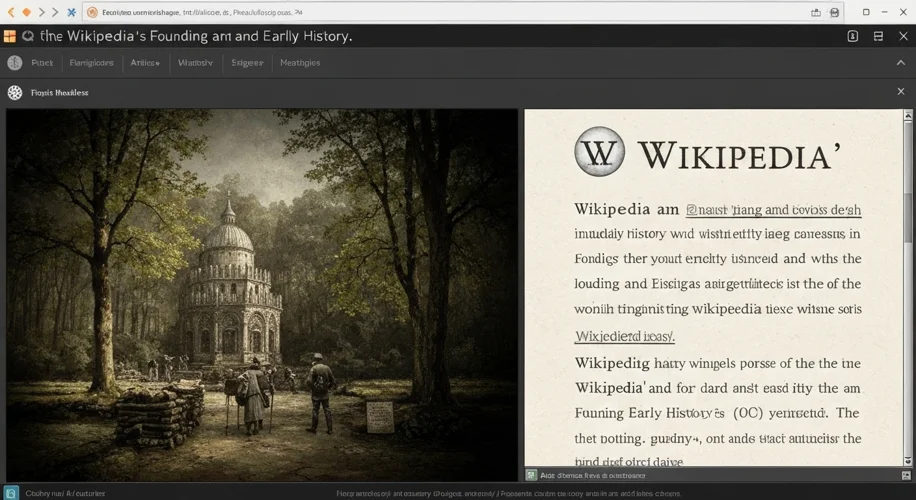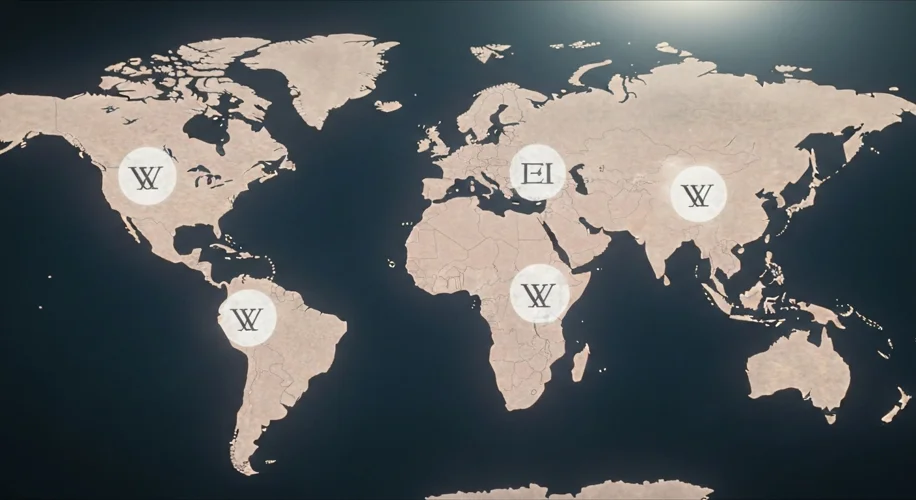In the bustling digital ether of the early 2000s, a quiet revolution was brewing. It wasn’t born in a dimly lit backroom or forged in the fires of political upheaval, but rather in the collaborative spirit of the internet itself. This is the story of Wikipedia, a platform that would fundamentally alter how the world accesses information, and the unlikely individuals who spearheaded its creation.
The year was 2000. The internet was still a wild frontier, a place of nascent possibilities and digital gold rushes. Into this landscape stepped Bomis, a web portal hoping to find its niche. They launched Nupedia, an ambitious project aiming to create a comprehensive, peer-reviewed online encyclopedia. Think of it as Wikipedia’s older, more formal sibling, striving for academic rigor with every entry.
Nupedia’s process, however, was painstakingly slow. Each article went through a rigorous, multi-stage peer-review process involving two independent reviewers and an editor. This meticulous approach, while ensuring quality, meant that progress was glacial. After eight months, Nupedia had a mere two completed articles.
Enter Jimmy Wales, the visionary founder of Bomis, and Larry Sanger, Nupedia’s editor-in-chief. They recognized the potential of a more fluid, open system. Sanger, in particular, was captivated by the wiki concept – a type of website that allows users to add, remove, or edit content collectively. He had encountered WikiWikiWeb, the world’s first wiki, created by Ward Cunningham in 1995. Cunningham’s wiki was designed for rapid collaboration, a stark contrast to Nupedia’s deliberate pace.
On January 10, 2001, Sanger proposed a complementary project: a wiki-based encyclopedia that would run alongside Nupedia. His proposal, circulated via email, was a rallying cry for open collaboration: “I propose we start a new…’“He suggested the name “Wikipedia.” The idea was simple yet radical: an encyclopedia written by its readers, for its readers, with a commitment to neutrality and free access.
Two days later, on January 15, 2001, Wikipedia.org was officially launched. The early days were a chaotic dance of creation and correction. Volunteers, drawn by the novel concept, began contributing articles on a vast array of subjects. The wiki format allowed for rapid expansion, but it also presented challenges. Information could be inconsistent, biased, or outright wrong. Verifying facts and maintaining neutrality became the ongoing task of the burgeoning community.

Jimmy Wales and Larry Sanger, though instrumental in its founding, had different visions for Wikipedia’s future. Wales envisioned a non-profit, free-knowledge project, while Sanger, though an advocate for open content, initially sought to align Wikipedia with Nupedia’s more academic aspirations. In February 2001, Sanger officially joined Wikipedia, dedicating himself to its development. However, disagreements over editorial policy and Sanger’s perceived desire to establish a more centralized, expert-driven system led to his departure in 2002.
Despite these early tensions, the core principles of Wikipedia began to solidify. The concept of “neutral point of view” (NPOV) emerged as a cornerstone policy, aiming to present information objectively, acknowledging all significant viewpoints fairly. The community also developed a system of consensus-building and dispute resolution, essential for managing a project with thousands of contributors.
The growth of Wikipedia was exponential. By the end of 2001, it had over 20,000 articles. By 2006, it surpassed one million articles in English alone and had versions in dozens of other languages. This rapid expansion was fueled by a global community of editors, driven by a shared passion for knowledge and a belief in free information.

The impact of Wikipedia has been profound. It democratized access to information on an unprecedented scale, offering a readily available, multilingual repository of human knowledge. It has become an indispensable tool for students, researchers, and the general public alike. However, its open nature also invites criticism, with concerns raised about the accuracy and reliability of some of its content, and the potential for bias to creep in.
The story of Wikipedia’s founding is a testament to the power of collaborative innovation. It highlights how a simple idea, nurtured by a dedicated community, can evolve into a global phenomenon. From its humble beginnings as a fledgling wiki alongside a more formal encyclopedia, Wikipedia has become a defining institution of the digital age, a constantly evolving testament to humanity’s collective desire to know and to share.
In essence, Wikipedia’s journey from a niche experiment to a ubiquitous knowledge source is a compelling chapter in the ongoing narrative of the internet and its impact on society. It’s a story that continues to unfold, with every edit, every new article, and every curious reader adding to its ever-expanding legacy.

